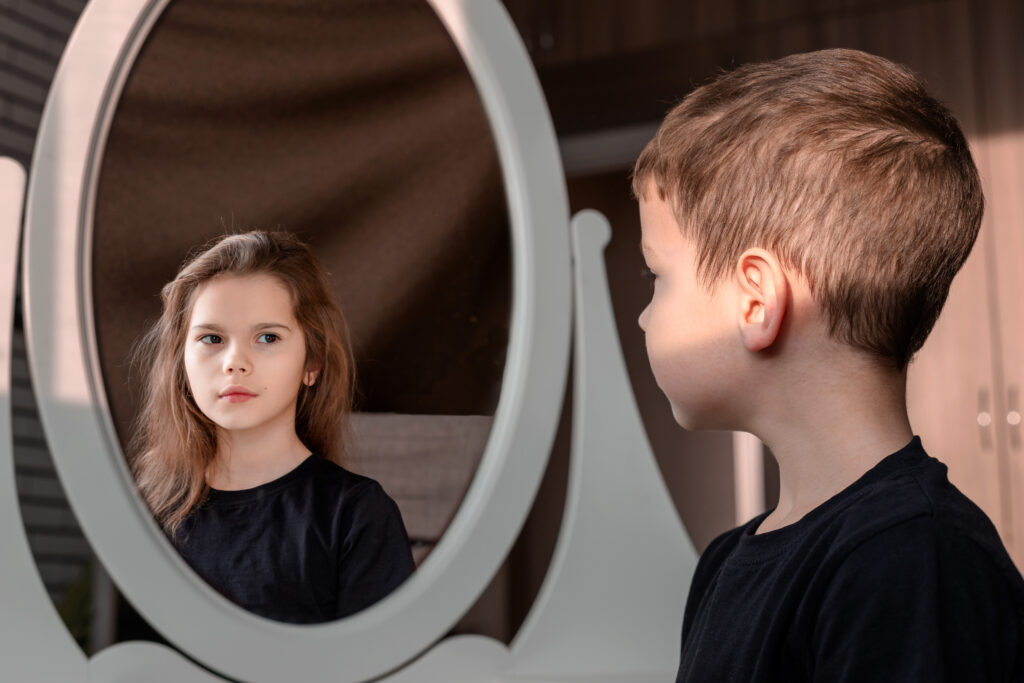8 actionable ways to love your transgender children
Many transgender children struggle with their identity and development, while parents often struggle with how to accept and support them. Family support and validation of gender identity are two of the most critical things a transgender child needs to be confident and grow. Without it, transgender children can suffer from depression and other mental health problems that put their health and well-being at risk.
Let’s explore nine actionable ways you can love and support your transgender child.
Love them for who they are. There is nothing in the process of transitioning that is easy for children. Teenagers especially struggle against many outside influences and social forces, and one of their biggest fears is often losing a parent’s love and acceptance. The unconditional love and support of their family will help make this difficult journey easier for your child.
It’s okay to share with your child that you are having a hard time. Just be sure to remind them that you are all in this together. Letting them see that you’re human too and learning to navigate this new experience alongside them is not only okay, it’s healthy.
Create a safe haven at home. Personal insecurities and outside pressure can quickly lead to mental health and substance abuse issues, which is why it is of the utmost importance that they have a safe environment to come home to and feel secure in. Love your child, listen to them, and make sure they feel supported, safe and comfortable in their own home at all times.
Take it slow. Social transitioning does not need to be rushed. If you think your child may be transgender, seek the advice of someone experienced in trans patient care, preferably a professional who can help guide a child or teenager’s transition. Finding resources and providers that work with the transgender community will be essential. Keep in mind that many physicians have little or no experience with this special niche in teenage and early childhood development, so take the time to find someone experienced. Appropriate health professionals will also be able to guide you through connecting with your local LGTBQ+ center and locating resources and providers that work with your local trans community.

Consider their family-building future. Although they aren’t thinking about having a family right now, they may want to at some point. You can help secure their future family by educating yourself about their options. Many gay or transgender persons feel that if they come out or transition that they will never have children of their own. Your help thinking through their family-building options will give them the security that if they choose to have a family someday, that door will remain open. For trans persons, hormone suppressive therapy can affect their future family building. To preserve their fertility options, they may want to consider cryopreserving their sperm or their eggs for future use in some cases. Helping them think about their future and supporting them in their present will let them know you are there for them. Your emotional (and possibly financial) support is a huge part of the overall acceptance you will be providing them.
Understand the statistics for trans children and teens. The suicide rates for transgender children are sadly very high. Suicidal thoughts develop from a lack of acceptance and understanding, and a large part of this stems from family support (or lack thereof). Transgender children who have to transition without family support also suffer from high rates of homelessness because of painful rejection by their own nuclear families. Make sure that your child knows, without a doubt, that you want them to not simply stay alive, but thrive, and that you will always love them for who they are. Remember that when a child is born, it’s impossible to predict who that child will become, but that should never change how much you love and care for them.
It’s okay to feel confused. As all parents know, you can’t program who your child will become. They are who they are, and sometimes letting them be who they are involves embracing a different gender identity than you anticipated. Keeping an open line of communication between you and your child is critical. It is okay to admit that you don’t fully understand what they’re going through, but it is important that they know you support them – no matter what.
Embrace and educate. In addition to embracing your child for who they are, the ability to show your child trans role models will play an integral part in their own acceptance of social transitioning. Some great examples of well known people in the trans community include:
- Laverne Cox – Actress and LGBTQ+ advocate. She is well known for her starring role on the hit Netflix series Orange Is The New Black.
- Caitlyn Jenner – Television personality and retired Olympic gold medal-winning decathlete. She went through a very public transition, much of which was documented on the TV series Keeping Up With The Kardashians.
- Chaz Bono – Actor, writer, and musician. His parents are entertainers Sonny Bono and Cher.
- Jazz Jennings – The youngest person to become a national transgender figure. She and her family are featured in the reality series I Am Jazz.
- Janet Mock – Television host, writer, director, and transgender activist. Her memoir Redefining Realness was a New York Times bestseller.
Know where to turn for support. Find the closest LGBTQ+ organization and someone in the community who can be a sounding board as you learn to navigate transitioning with your child. The nearest LGBTQ+ center may have a social worker, staff member, or volunteer who can be a great help to you and your family. There are also many community centers that offer trans counseling groups for teens. National organizations that can help include PFLAG (Parents, Families and Friends of Lesbians and Gays), a great resource for parents and families that could point you in the right direction to finding local resources as well as providing ways for you to be involved in advocacy in your area. For kids, GLSEN (Gay, Lesbian & Straight Education Network) is a youth awareness and education organization working to create safe schools for all children. They offer student clubs, safe kits, and lots of programs for kids K-12 to get involved in.
The best way to help your transgender child or teenager navigate this process is to remain curious, open-minded and loving. You don’t need to have all the answers or be a perfect parent. Just stay present, keep lines of communication open, and reach out to the greater LGBTQ+ community for resources and support. And always remember: you are your child’s best advocate!
This piece was previously published on Thrive Global.






